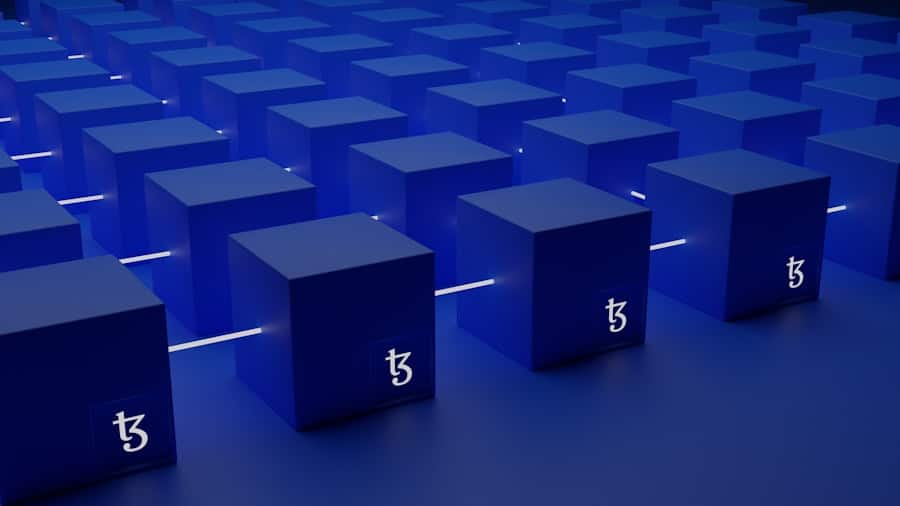Artificial Intelligence (AI) and blockchain technology are two of the most transformative innovations of the 21st century, each with the potential to revolutionize various sectors. AI, characterized by its ability to learn from data and make decisions, has already begun reshaping industries such as healthcare, finance, and transportation. Meanwhile, blockchain, a decentralized ledger technology, offers unprecedented levels of transparency, security, and trust in digital transactions.
The convergence of these two technologies presents a unique opportunity to enhance the capabilities of AI while addressing some of its inherent challenges. The integration of AI and blockchain is not merely a technological novelty; it represents a paradigm shift in how data is managed, processed, and utilized. By leveraging the strengths of both technologies, organizations can create systems that are not only more efficient but also more trustworthy.
This collaboration can lead to the development of trustless AI models—systems that operate without the need for a central authority or intermediary, thereby reducing the risk of bias, manipulation, and data breaches. As we delve deeper into this intersection, it becomes clear that understanding the synergy between AI and blockchain is crucial for harnessing their full potential.
Key Takeaways
- AI and blockchain are two cutting-edge technologies that are revolutionizing various industries.
- Blockchain plays a crucial role in creating trustless AI models by providing a secure and transparent platform for data storage and transactions.
- The collaboration between AI and blockchain ensures data integrity by using consensus mechanisms and encryption techniques.
- Decentralization is essential in AI and blockchain collaboration as it eliminates the need for a central authority, making the system more secure and transparent.
- Trustless AI models enabled by AI and blockchain collaboration include supply chain management, healthcare data sharing, and financial transactions, among others.
The Role of Blockchain in Creating Trustless AI Models
Blockchain technology plays a pivotal role in establishing trustless AI models by providing a decentralized framework that ensures data integrity and transparency. In traditional AI systems, data is often stored in centralized databases, making it vulnerable to tampering and unauthorized access. Blockchain mitigates these risks by distributing data across a network of nodes, where each transaction is recorded in an immutable ledger.
This decentralization not only enhances security but also fosters accountability, as all participants in the network can verify the authenticity of the data used to train AI models. Moreover, blockchain enables the creation of smart contracts—self-executing contracts with the terms of the agreement directly written into code. These smart contracts can automate various processes within AI systems, such as data sharing and model training.
This not only streamlines operations but also reinforces ethical standards in AI development. By embedding trust directly into the architecture of AI systems through blockchain, organizations can build models that are more resilient to manipulation and bias.
How AI and Blockchain Work Together to Ensure Data Integrity

The collaboration between AI and blockchain significantly enhances data integrity, a critical factor for the reliability of AI models. Data integrity refers to the accuracy and consistency of data over its lifecycle. In AI applications, the quality of input data directly influences the performance and outcomes of machine learning algorithms.
Blockchain’s immutable nature ensures that once data is recorded, it cannot be altered or deleted without consensus from the network participants. This characteristic is particularly beneficial for training datasets used in AI, as it guarantees that the information remains intact and trustworthy throughout the model’s lifecycle. Furthermore, blockchain can facilitate provenance tracking for data used in AI systems.
By maintaining a transparent record of where data originates and how it has been modified over time, stakeholders can assess its reliability and relevance. For example, in supply chain management, an AI model could analyze data related to product origins, transportation conditions, and storage practices. With blockchain providing a verifiable history of this data, companies can ensure that their AI-driven insights are based on accurate and trustworthy information.
This synergy not only bolsters confidence in AI outputs but also encourages broader adoption across industries that require stringent data governance.
The Importance of Decentralization in AI and Blockchain Collaboration
Decentralization is a fundamental principle underlying both blockchain technology and the envisioned future of AI systems.
By decentralizing both data storage and processing through blockchain, organizations can distribute power among multiple stakeholders, reducing the risks associated with central authority.
This shift not only enhances security but also democratizes access to AI capabilities. In a decentralized framework, individuals or organizations can contribute their data to train AI models without relinquishing control over it. This is particularly relevant in sectors like healthcare, where patient data is sensitive and subject to strict regulations.
By utilizing blockchain to create a decentralized marketplace for health data, patients can choose to share their information with researchers or companies while retaining ownership and control over its use. This model fosters collaboration while ensuring that ethical considerations are upheld. The decentralization inherent in this approach encourages innovation by allowing diverse participants to contribute to the development of AI models without fear of exploitation or misuse.
Examples of Trustless AI Models Enabled by AI and Blockchain Collaboration
Several pioneering projects exemplify how the collaboration between AI and blockchain can lead to the creation of trustless AI models across various industries. One notable example is Ocean Protocol, which aims to unlock data for AI while ensuring privacy and security through blockchain technology. Ocean Protocol allows data owners to share their datasets with AI developers without exposing sensitive information.
By using smart contracts to govern access rights and usage terms, Ocean Protocol creates a trustless environment where both parties can engage without fear of data misuse. Another compelling case is Fetch.ai, which combines autonomous agents with blockchain technology to facilitate decentralized machine learning. Fetch.ai enables devices to communicate and collaborate without human intervention by utilizing a decentralized network where agents can negotiate and transact autonomously.
This model allows for real-time decision-making based on collective intelligence while ensuring that all interactions are recorded on the blockchain for transparency and accountability. Such applications demonstrate how trustless AI models can operate effectively in environments where traditional centralized systems may falter.
Challenges and Limitations of Integrating AI and Blockchain

Scalability Limitations
Both AI and blockchain technologies face significant scalability limitations. Blockchain networks, in particular, struggle with throughput issues due to their consensus mechanisms, which can slow down transaction speeds as more nodes join the network. This limitation poses a significant challenge for real-time applications of AI that require rapid data processing.
Interoperability Concerns
Another significant challenge is ensuring seamless communication between diverse platforms. Many organizations operate on proprietary systems that may not easily integrate with new blockchain solutions. Interoperability between different blockchain platforms and existing legacy systems is essential for maximizing the benefits of this collaboration.
Regulatory Uncertainties
Regulatory uncertainties surrounding both AI and blockchain technologies can hinder innovation. Companies must navigate complex legal landscapes while trying to implement these advanced solutions, which can be a significant obstacle to successful integration.
Future Implications of Trustless AI Models for Industries
The future implications of trustless AI models enabled by the collaboration between AI and blockchain are vast and transformative across various industries. In finance, for instance, trustless AI could revolutionize credit scoring by utilizing decentralized data sources to assess an individual’s creditworthiness without relying on traditional credit bureaus. This approach could lead to more inclusive financial services for individuals who may lack access to conventional banking systems.
In healthcare, trustless AI models could enhance patient care by enabling secure sharing of medical records across institutions while maintaining patient privacy. By leveraging blockchain’s immutable ledger for storing health data, healthcare providers can ensure that they have access to accurate patient histories when making treatment decisions. This could lead to improved outcomes through personalized medicine based on comprehensive patient profiles derived from diverse datasets.
Conclusion and Future Directions for AI and Blockchain Collaboration
As we look ahead, the collaboration between AI and blockchain holds immense promise for creating innovative solutions that address some of today’s most pressing challenges. The development of trustless AI models will likely continue to evolve as both technologies mature and become more integrated into everyday applications. Future research will need to focus on overcoming existing barriers such as scalability, interoperability, and regulatory compliance to fully realize this potential.
Moreover, as organizations increasingly recognize the value of decentralized systems in fostering trust and transparency, we may witness a shift in how businesses approach data management and decision-making processes. The ongoing exploration of ethical considerations surrounding AI will also play a crucial role in shaping this landscape as stakeholders seek to balance innovation with responsibility. Ultimately, the synergy between AI and blockchain could redefine industries by creating systems that prioritize integrity, security, and user empowerment in an increasingly digital world.
A related article discussing the latest consumer technology breakthroughs can be found on CNET. This article delves into how emerging technologies are shaping the future and highlights the importance of staying up-to-date with the latest advancements in the tech industry. The collaboration between AI and blockchain to create trustless AI models is just one example of how technology is constantly evolving and revolutionizing various sectors.
FAQs
What is AI?
AI, or artificial intelligence, refers to the simulation of human intelligence processes by machines, especially computer systems. These processes include learning, reasoning, and self-correction.
What is Blockchain?
Blockchain is a decentralized, distributed ledger technology that records the provenance of a digital asset. It is most commonly associated with cryptocurrencies, but its potential applications extend far beyond that.
How are AI and Blockchain collaborating?
AI and Blockchain are collaborating to create trustless AI models by using blockchain’s decentralized and transparent nature to ensure the integrity and security of AI models and their data. This collaboration aims to address issues of trust, security, and privacy in AI.
What are trustless AI models?
Trustless AI models are AI models that can operate without the need for trust in a central authority or intermediary. They are enabled by blockchain technology, which provides a decentralized and transparent framework for ensuring the integrity and security of AI models and their data.
What are the benefits of trustless AI models?
Trustless AI models offer increased transparency, security, and privacy, as well as reduced reliance on centralized authorities. They also have the potential to improve the trustworthiness and reliability of AI applications and services.
What are some examples of trustless AI applications?
Examples of trustless AI applications include decentralized AI marketplaces, secure and private AI data sharing platforms, and transparent AI model validation and verification systems. These applications leverage the collaboration between AI and blockchain to ensure trustless operation.

